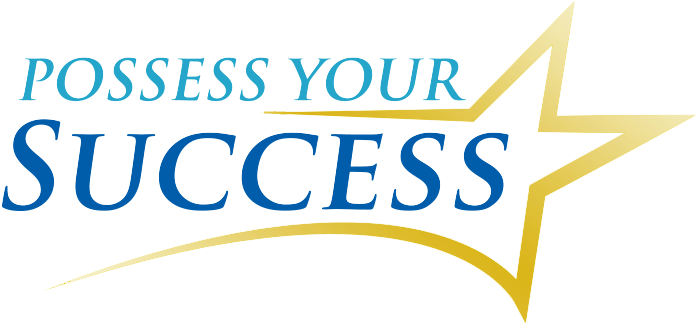10 Secrets of a Job-Winning Resume
I have come a LONG way with my resume, and it’s simply amazing to think about my very first one I created in high school. It’s since evolved and transformed into a job-generating machine! And now as someone has done with me, I’m sharing with you the secrets you should know that will get you that job interview you’ve been waiting for.
In a rush? Download an offline copy of this post here.
1. Your Resume is Like a Website
20 Seconds.
According to Jeff the Career Coach that’s all a recruiter allots for your poor resume, if you’re even lucky enough to get a human looking at it! Like Google does for websites, most companies use software that looks for certain keywords that match the job description. To have a winning resume, you must use the same keywords and lingo that are in the job description! If a job description emphasizes “team member” over “employee”, your resume had better say “team member” too.
What’s more, in that 20 seconds the recruiter only looks at good 20-30% of your resume before he or she decides to save or discard it. So just like a website uses the top portion of the page (the header, description, etc.) very wisely to draw users in, you must do the same justice to catch the recruiter’s eye.
2. Clear as Mud
In order to keep a recruiter (or software) interested in you, your resume must be clear and concise. Use everything you can—margins, font, bullets, spacing, etc.—to your advantage, and again, use it wisely. If not, things get cluttered and annoying with huge blocks of text to bore the recruiter to tears and text screaming at them. Think about it: With thousands of resumes to go through, why would a recruiter deal with all that mess when the next candidate’s resume is SO much easier to read?
3. “Plain Jane” Gets Jobs
With all the focus on separating yourself from the pack, it’s easy to go overboard. However, the best resumes are not the flashiest. They are the easiest to read, the most organized, and the most efficient in terms of white space. If you’re going to make an impact on a recruiter, do it in the content of your words, not in the pizzazz of your overused borders and screaming fonts.
4. Organization makes a difference
Get someone to read the top 20-30% of your resume in 20 seconds and ask if they get a good picture of who you are and what you can do. If not, you have some work to do! Here is the basic layout of a well-organized resume:
- Name and Contact Info
- Professional Summary
- Experience
- Skills
- Education
- Accolades and Achievements (Optional)
If you don’t have any work experience, you should replace Experience with Education.
5. Numbers, Numbers, Numbers
This is what separates an average resume from a Job-Winning resume. Adding numbers to your resume can be extremely difficult, but if done correctly will truly impress a recruiter. Yes, it’s going to take effort and creativity—I used to say the same thing—but there is hope. Jeff the Career Coach has outlined some really good examples here to get you started. Always use numerical formats for optimized readability; they take up less space and are easier to read than words. Trust me; your recruiter will thank you immensely.
6. “Professional Summary” is the new “Career Objective”
I remember typing out a Career Objective early in my career but not knowing what it was. Then I was told my good friend and resume-writing extraordinaire Jackie Williams to get rid of it altogether because people don’t really look at it anyways. I was then given some valuable advice on how best to use that extra space: the Professional Summary. It outlines all of your noteworthy experience and explains what you can do in about 5-6 bullet points. Remember to use numbers and job description buzzwords whenever possible.
7. One Resume is Not Gonna Cut It
If you don’t have a separate resume or cover letter for each position you are applying for, then you are at a serious disadvantage compared to your peers. Remember, the job description is key! The company is literally telling you what they are looking for, and each position may be different. This may not mean a complete restructuring of your resume for each job posting, but each one should differ in how your skills and experiences match each one of the posting’s qualifications.You want to appear like you will fit the role like a glove, and your resume should only include information that is relevant to the job description as stated in the job description; no more, no less.
8. Be Meticulous!
You must understand that resumes are very professional, and only a select few make the cut. Nothing will set off a red flag to the recruiter more than a candidate who won’t even take the time to run a spell check or proof-read their own resume! Read through it once, twice, thrice even, and then pass it along to 2 or 3 professional individuals to read over as well. If they cannot find any grammar mistakes, then you should be okay.
9. Get Multiple Opinions and Choose 3
One thing you are going to find out there is that everyone seems to be an “expert” on resume-writing and no two critiques are going to be the same. Resume-writing is an art, not a science. However, what I suggest is to get multiple opinions from various professional sources and note the points that they agree on. I would choose the 3 that agree the most and apply as many of their suggestions as possible. This may come from online as well as offline sources, and always try to understand the rational behind the advice. Doing so will reveal insights as well as filter out the garbage from the gold.
10. Pride Will Get You Nowhere
I once thought my resume was the best one on the planet. Then one day, after Jackie had gotten a hold of it, I realized just how much work it took to have a Job-Winning Resume. I thought I was in grade-school with all of the red ink and comments written on it! Had I let my pride get the best of me, I would never have known these resume secrets and neither would you. As far as results are concerned, within 24 hours of posting my new-and-improved resume online, I got 6 calls from recruiters. 6 calls! Therefore take the valuable information you receive and apply it generously. Your emotional reaction to constructive feedback could jeopardize your job search!
I hope these secrets boost your resume-writing skills. If you have any more tips, feel free to drop your advice down below, or e-mail me. If you want to reach out to Jackie Williams (who taught me most of everything I know about resumes) with any questions, you can e-mail her. Yes, it’s a lot of work and can be discouraging and daunting at times. But I promise you will get out what you put in. It’s totally worth the effort!
So in sum, give your resume a hard, objective look and if there are areas to improve based on the above, change it. Doing so can mean the difference between an interview call and the dreaded “green filing bin”.


I couldn't have said it better myself Andrew! The first step to creating the job winning résumé is knowing your value in your desired industry and believing it. A résumé is your #1 marketing tool when you're not networking, and if you're unsure of your value you won't be able to articulate your accomplishments in a concise format. I'd like to add to secret #9 – choose your opinions wisely. What works for a finance analyst won't be the same for an IT professional. So I'd recommend getting feedback from someone who's good in grammar to catch words like 'there' vs 'their' and the other two reviewers should be knowledgeable about your desired industry.